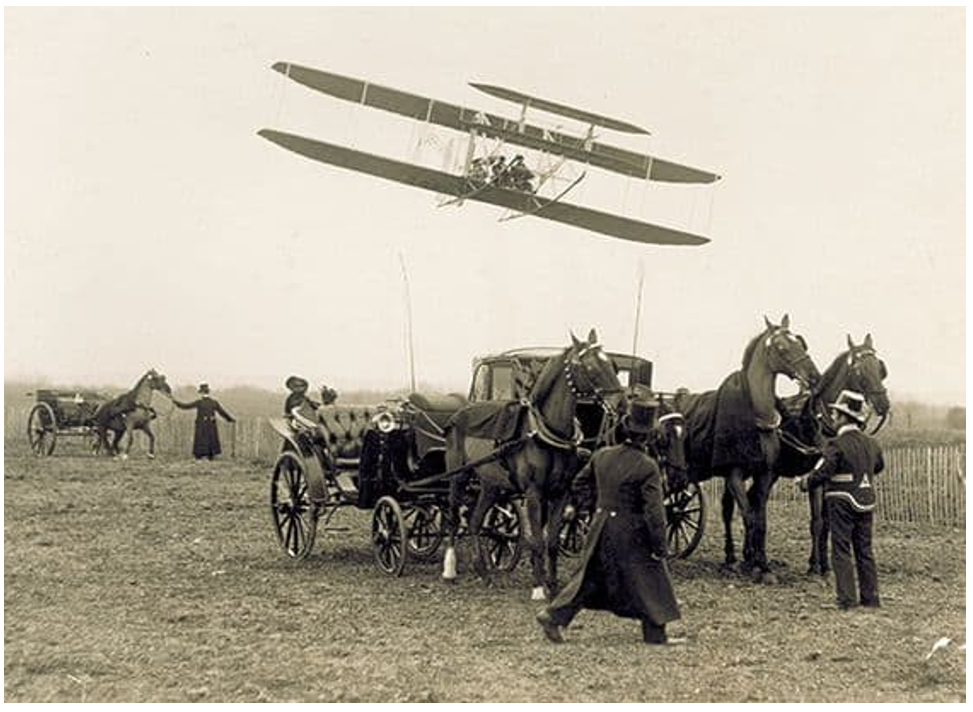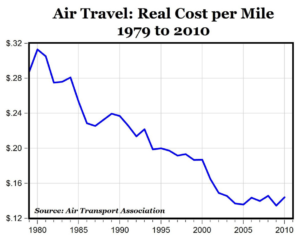
“Man is born free,” Rousseau wrote, “but everywhere he is in chains.”
Adam Thierer, a Mercatus Center scholar focused on innovation, sounds a similar note when he says industries are either “born free” or “born in captivity.” The difference, Thierer says, lies in the amount of regulation involved in the industry. There are no Departments of Artificial Intelligence or Gene Therapy in the federal government for instance, but many industries (like education) are not so lucky.
Thierer has written a book about entrepreneurs in industries “born in captivity” engaging in what he describes as “evasive entrepreneurialism” and the freedom to innovate. Think of sharing-economy efforts like Uber and Airbnb, but also do-it-yourself groups like 3D printer enthusiasts (who swap print designs) or groups with a shared interest in medical therapies.
Or Matthew McConaughey in his Academy Award-winning portrayal of Ron Woodroof, an early victim of AIDS, who was harassed by the Food and Drug Administration for attempting to survive the disease in The Dallas Buyer’s Club.
“Some evasive behavior could even be considered ‘technological civil disobedience …’” Thierer writes, “…in the sense that many innovators behave in this fashion because they find many rules to be offensive, confusing, time-consuming, expensive, or perhaps just annoying and irrelevant.”
Economist Russ Roberts recently interviewed Matt Ridley for his podcast EconTalk in which a simple but crucially important observation was made: Orville Wright did not have a pilot’s license. That short sentence speaks volumes about the concept of permission-less innovation. We are quite fortunate that the Wright brothers didn’t ask for a license to fly. They just went and did it.
By the 1970s, however, the airline industry found itself so hopelessly entangled in federal micromanagement that federal officials decided both routes and rates. Fortunately, maverick Southwest Airlines managed to engage in a bit of “evasive entrepreneurialism” by flying only in the state of Texas, thereby demonstrating the benefits of price competition to consumers.
 The Carter Administration wisely deregulated the airline industry and the inflation-adjusted price per mile flown steadily fell, placing air travel within reach of ordinary Americans as a result, as American Enterprise Institute economist Mark Perry illustrated in the chart to the right.
The Carter Administration wisely deregulated the airline industry and the inflation-adjusted price per mile flown steadily fell, placing air travel within reach of ordinary Americans as a result, as American Enterprise Institute economist Mark Perry illustrated in the chart to the right.
Multiple generations of would-be American educators have entered a captive K-12 industry. In fact, it is difficult to think of an industry more regulated than K-12 education. Educators today face a complex web of local, state and federal regulation. If regulation were the key to high quality education, we would be set.
Maybe we will finally get it right next time?
If, of course, we had waited for federal officials to regulate the airlines industry the “right way” as opposed to deregulating it, many people reading this would likely have never set foot on an airplane. Any chance that many of these rules and regulations are either “offensive, confusing, time-consuming, expensive, or perhaps just annoying and irrelevant” in education?
So, hats off to a new generation of evasive entrepreneurs operating in the K-12 space creating “pandemic pods.” Like the founders of ridesharing, Ron Woodruff, Orville Wright or Southwest Airlines, pandemic pod parents decided it was better to ask for forgiveness than for permission.
The only way to learn is by having people try new things, and I suspect what we learn about education will be one of the silver linings in what is a truly awful pandemic. Americans were born free and should have a great aspiration to stay that way.


